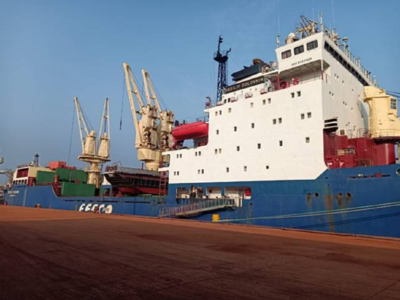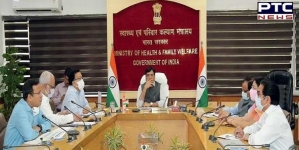-
CANBERRA: India-Australia partnership aims to bridge skill gap for future employment - April 15, 2024
-
HOUSTON: Mumbai boys in the final rounds of FIRST World Robotics competition to be held in Houston - April 14, 2024
-
MADRAS: IIT Madras NPTEL translates thousands of technical courses into several regional languages - April 10, 2024
-
MUMBAI: Shahid Kapoor opens up about the challenges faced by character actors in Bollywood - April 8, 2024
-
NEW DELHI: World Health Day 2024: Date, Theme, History, Significance and Interesting Facts - April 6, 2024
-
LONDON: Indian-Origin Teen In UK Gets “Life-Changing” Cancer Treatment - April 3, 2024
-
BENGALURU: Indian scientists unravel genetic secrets behind lumpy skin disease outbreak - March 30, 2024
-
NEW DELHI: Youngsters’ Increasing Stress Levels, Early Onset of Diseases an Alarming Health Trend: Apollo Hospitals Chief - March 28, 2024
-
MARYLAND: All About Pavan Davuluri, New Head Of Microsoft Windows - March 27, 2024
-
MUMBAI: Pyaar Kiya To Darna Kya turns 26: Kajol says THIS was the symbol of an innocent girl back then - March 27, 2024
WELLINGTON: 40th Indian scientific expedition to Antarctica
WELLINGTON:
India on Monday launched the 40th scientific expedition to Antarctica with a
43-member team embarking upon the Russian ice-class vessel MV Vasiliy Golovnin.
The expedition, which comes amidst the logistical challenges posed by Covid-19,
marks four decades of the country’s scientific endeavour to the southern
continent.
The expedition will commence from
Mormugao Port Trust, Goa on January 5 with 43 members and will sail to Cape
Town, South Africa where five more members will climb onboard. The chartered vessel
is expected to reach Antarctica in 30-45 days and will bring back the 48
members who have been on the continent for 15 months.
The National Centre for Polar and Ocean Research (NCPOR), which manages the
entire Indian Antarctic program said that the expedition has been limited to
support the ongoing scientific projects on climate change, geology, ocean
observations, electric and magnetic flux measurements, environmental
monitoring; resupplying of food, fuel, provisions and spare; and accomplishing
the return of the winter crew
Director (Marketing) at IndianOil Gurmeet Singh and Director of NCPOR Dr. M.
Ravichandran bade a formal farewell to the crew who embarked the vessel on
Monday in the presence of MPT chairman E. Ramesh Kumar and Postmaster General,
Goa Region N. Vinodkumar.
“Polar regions are crucially important in answering key questions about the
global climate change, its contribution towards global sea-level rise, the
background aerosol properties, variability in the sea ice cover and phenomenon
like Antarctic haze and ozone concentrations,” said Dr. M. Ravichandran.
Ravhichandran said that efforts to address climatic issues will help in
mitigating critical problems pertaining to climate change, geology, ocean
behaviour and environmental degradation.
The Indian Antarctic expeditions began in 1981 with the first trip consisting
of a team of 21 scientists and support staff led by Dr SZ Qasim. Today, the
Indian Antarctic programme has three permanent research base stations in
Antarctica; Dakshin Gangotri, Maitri, and Bharati of which Maitri and Bharati
are operational.
























